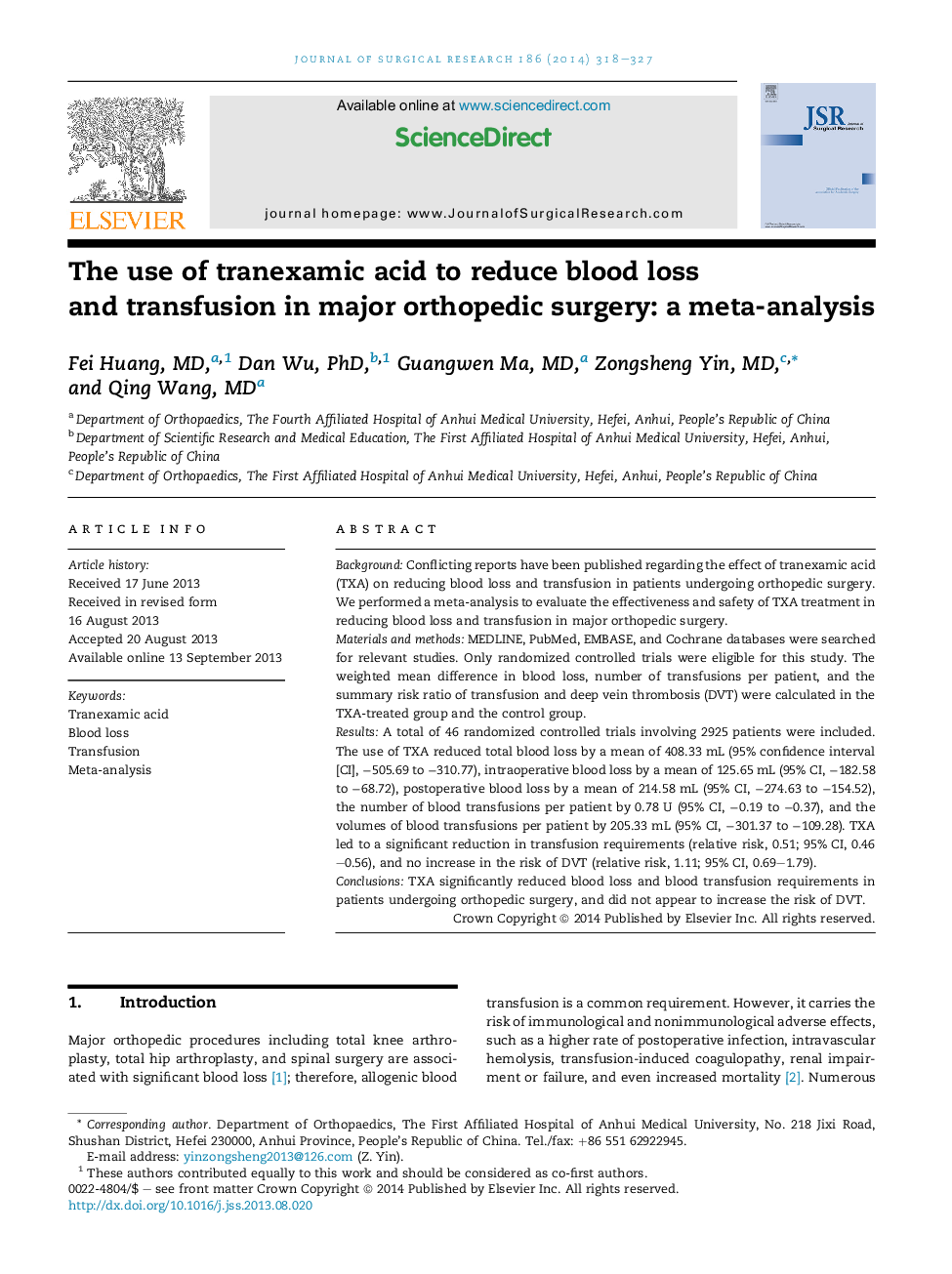| Article ID | Journal | Published Year | Pages | File Type |
|---|---|---|---|---|
| 6254202 | Journal of Surgical Research | 2014 | 10 Pages |
BackgroundConflicting reports have been published regarding the effect of tranexamic acid (TXA) on reducing blood loss and transfusion in patients undergoing orthopedic surgery. We performed a meta-analysis to evaluate the effectiveness and safety of TXA treatment in reducing blood loss and transfusion in major orthopedic surgery.Materials and methodsMEDLINE, PubMed, EMBASE, and Cochrane databases were searched for relevant studies. Only randomized controlled trials were eligible for this study. The weighted mean difference in blood loss, number of transfusions per patient, and the summary risk ratio of transfusion and deep vein thrombosis (DVT) were calculated in the TXA-treated group and the control group.ResultsA total of 46 randomized controlled trials involving 2925 patients were included. The use of TXA reduced total blood loss by a mean of 408.33Â mL (95% confidence interval [CI], â505.69 to â310.77), intraoperative blood loss by a mean of 125.65Â mL (95% CI, â182.58 to â68.72), postoperative blood loss by a mean of 214.58Â mL (95% CI, â274.63 to â154.52), the number of blood transfusions per patient by 0.78Â U (95% CI, â0.19 to â0.37), and the volumes of blood transfusions per patient by 205.33Â mL (95% CI, â301.37 to â109.28). TXA led to a significant reduction in transfusion requirements (relative risk, 0.51; 95% CI, 0.46-0.56), and no increase in the risk of DVT (relative risk, 1.11; 95% CI, 0.69-1.79).ConclusionsTXA significantly reduced blood loss and blood transfusion requirements in patients undergoing orthopedic surgery, and did not appear to increase the risk of DVT.
